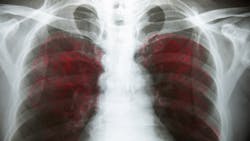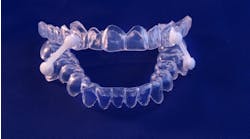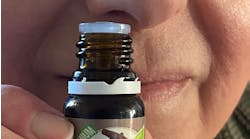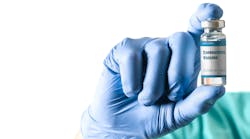Uncontrolled inflammation: The real problem with COVID-19 severity
A recent literature review from the Journal of Immunology1 suggests that although the majority of those who contract COVID-19 experience mild to moderate symptoms, the severity of the SARS-CoV-2 infection is associated with dysregulation of inflammatory immune responses. When this hyperinflammatory response (or “cytokine storm”) occurs, it inhibits the development of protective immunity to the infection, and the patient becomes susceptible to sepsis-like inflammation, coagulopathy, and respiratory or cardiovascular complications.
In normal immunity, the innate immune system mounts an immediate inflammatory response to limit the infection and help the adaptive immune system develop long-lasting, host-protective antibodies and T-cell responses against the virus within seven to 10 days postinfection. However, when inflammation is not modulated or resolved after serving its purpose, it develops into hyperinflammation or becomes chronic and results in the inhibition of adaptive immune responses, tissue damage, or organ failure. This dysregulated inflammation results in the major cause of adverse outcomes in SARS-CoV-2–induced COVID-19.
The authors of the study suggest that controlling viremia by antiviral means may not be the best therapeutic strategy; instead, the use of therapeutics to modulate inflammation without compromising the adaptive immune response could be the most effective therapy. Current antiviral treatments, such as hydroxychloroquine and remdesivir, are reviewed in the study, as well as nonspecific anti-inflammatory approaches with corticosteroids and nonsteroidal anti-inflammatory medications that are effective yet may interfere with the adaptive immune response.
They conclude that highly tailored anti-inflammatory drugs such as losartan, which work by blocking the type I angiotensin II receptor and thereby inhibiting inflammation without compromising an adaptive immune response, should be considered. A combination of losartan with passive immunotherapy by means of convalescent plasma could be a promising strategy in COVID-19–symptomatic patients for the prevention or treatment of severe clinical symptoms, allowing patients to develop immunity against the virus.
Related articles
- CDC revises guidance on isolation after COVID-19–positive test
- Can periodontal disease be a contributing factor for COVID-19 severity?
- Downloadable COVID-19 screening form for dental patients
- The importance of periodontal treatment in post–COVID-19 dentistry
References
- Manjili RH, Zarei M, Habibi M, Manjili MH. COVID-19 as an acute inflammatory disease. J Immunol. 2020;205(1):12-19. doi:10.4049/jimmunol.2000413
Editor’s note: This article originally appeared in Perio-Implant Advisory, a newsletter for dentists and hygienists that focuses on periodontal- and implant-related issues. Perio-Implant Advisory is part of the Dental Economics and DentistryIQ network. To read more articles, visit perioimplantadvisory.com and subscribe at this link.
Scott Froum, DDS, a graduate of the State University of New York, Stony Brook School of Dental Medicine, is a periodontist in private practice at 1110 2nd Avenue, Suite 305, New York City, New York. He is the editorial director of Perio-Implant Advisory and serves on the editorial advisory board of Dental Economics. Dr. Froum, a diplomate of the American Board of Periodontology, is a clinical associate professor at SUNY Stony Brook School of Dental Medicine in the Department of Periodontology. He serves on the board of editorial consultants for the Academy of Osseointegration's Academy News. Contact him through his website at drscottfroum.comor (212) 751-8530.









